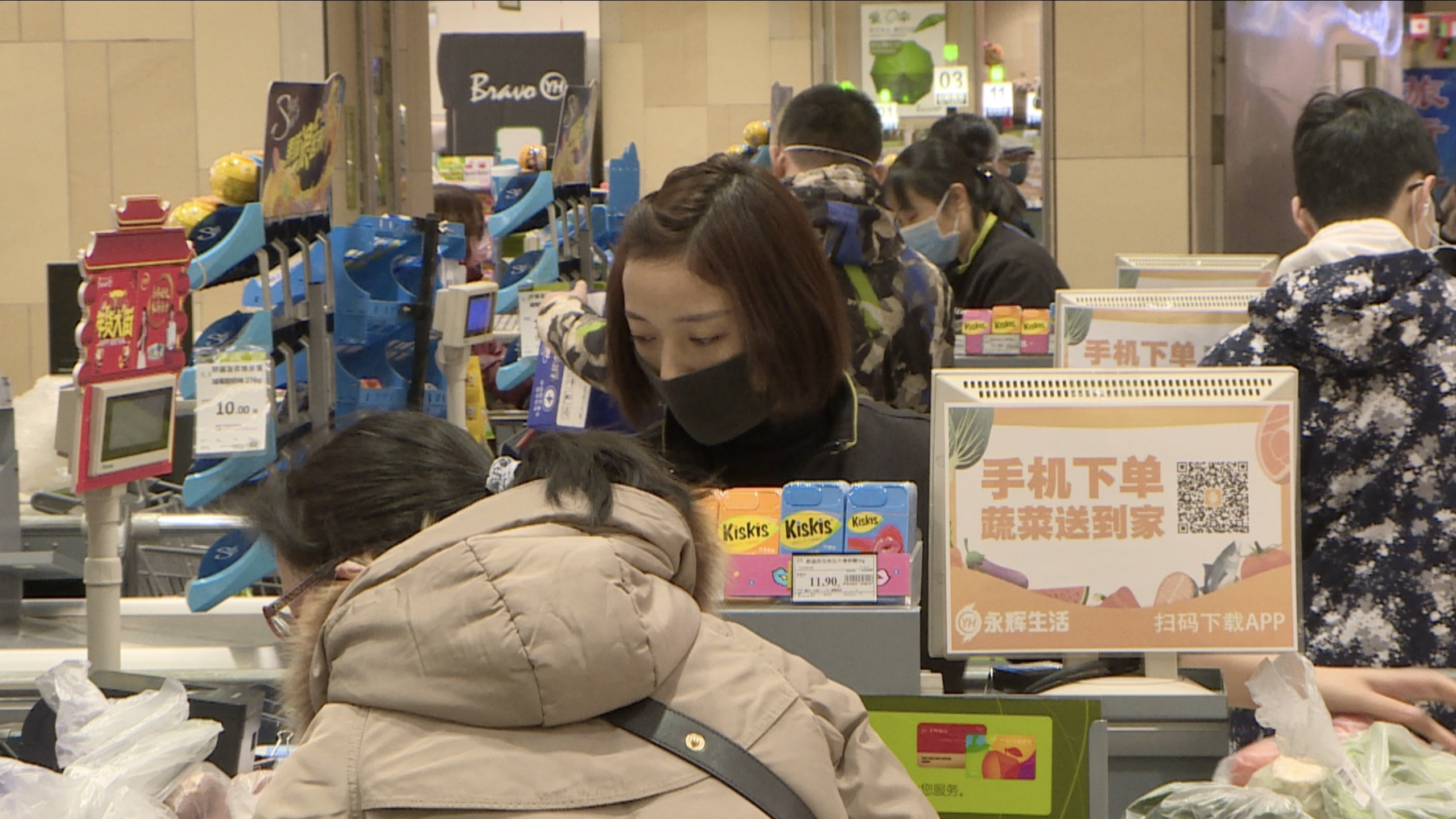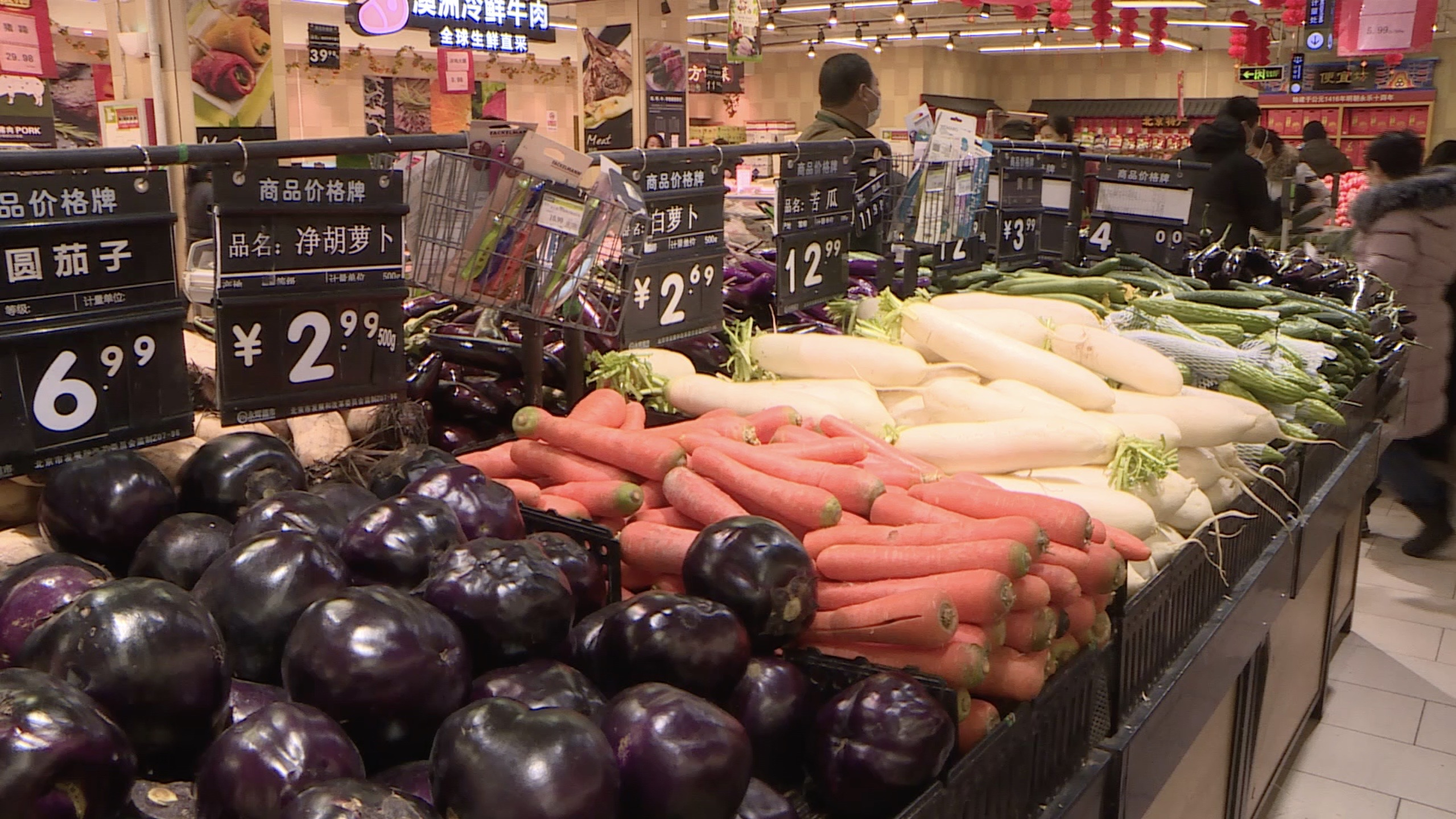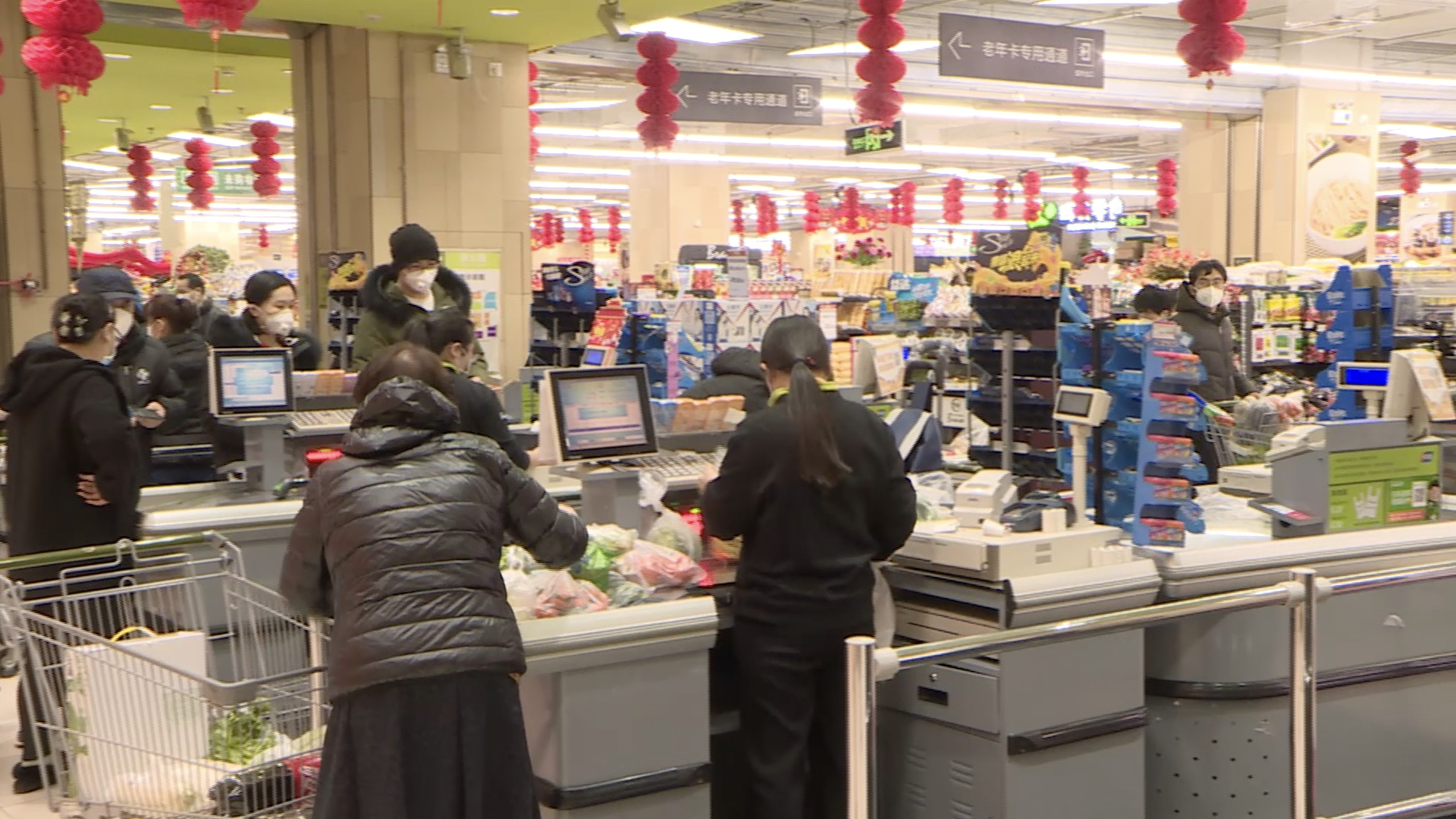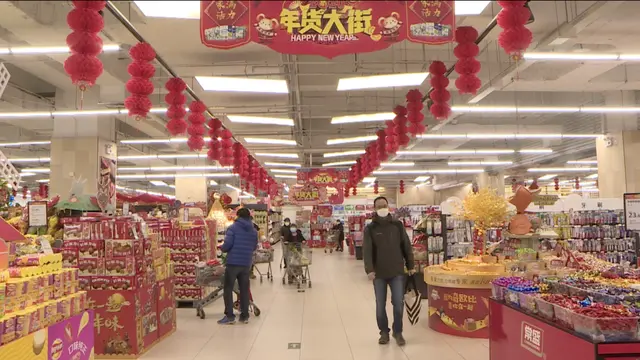Beijing has lessened a temporary vegetable shortage and is making efforts to ensure an abundant supply of food and other daily necessities for local people, as part of efforts for the prevention and control of the novel coronavirus.
The Beijing Municipal Bureau of Commerce said vegetable shortages due to logistical challenges arising from the spread of the outbreak were temporary and supply had been restored on January 28.
In Xinfadi, one of the largest wholesale vegetable marketsin the Chinese capital, the market supply of vegetables totaled 17,370,000 kilograms on Thursday, the sixth day of Chinese Lunar New Year. This was an increase of 22.4 percent compared with the same day last year.

Customers purchase goods at a supermarket in Beijing, China, February 1, 2020. /CGTN photo
The average retail price of 26 vegetables including Chinese cabbage, white radish, potato, onion, tomato and cucumber was 7.69 yuan per kilogram, an increase of 1.5 percent compared with the same day last year.
This was shown atYonghui, a superstore with 45 outlets inBeijing. OnSaturday, a CGTN reporter went to one of its stores in a community named Changying in the east of the city.
In normal times, the supermarket is full of people laughing and talking but recently they have been wearing masks for epidemic prevention. So, the general atmosphere is somewhat different.
The good news is that the shelves are stocked as before. Staple foods such as vegetables and eggs are packed well, and many options are offered.

Vegetables are in abundant supply in a branch of Yonghui, one of the largest supermarket chains in Beijing on February 1, 2020. /CGTN photo
Zhou Guangyuan, the shop manager, said that they had brought more supplies into stock since Friday.
"We make sure that all goods come into the supermarkets before 6 a.m. every day. We send daily necessities and foods like Chinese cabbage from their production place directly here. And there are 100, sometimes 200 tons of them every day. And online sales are the same," Zhou said.
Every few hours the shelves are filled in with goods. But what about the prices?
One old man said that he bought some steamed buns, bread and celery, and that prices were just a bit higher than in the past.

The checkout counter at a supermarket in Beijing, China, February 1, 2020. /CGTN photo
Another customer bought some meat and he commented that prices were almost the same as in the past.
Ayoung lady said that a slight rise in prices was understandable.
"In general, the price is a bit higher. But I think this is understandable because in an epidemic, the transportation of foods like vegetables is difficult," she said.
As you might expect, precautionary measures to stop the spread of the virus were underway. Staff were wearing masks and were required to report their body temperature.
Acashier named Li Haiyue said that this was important.
"We completely disinfect the counter, then clean our hands and then after serving for one hour, we clean our hands with disinfectant," Li said.
While this is certainly a period for us to contain the novel coronavirus, it can be seen from the supermarkets and stores in Beijing that there are sufficient supplies for people's needs.
(ASIA PACIFIC DAILY)
 简体中文
简体中文

